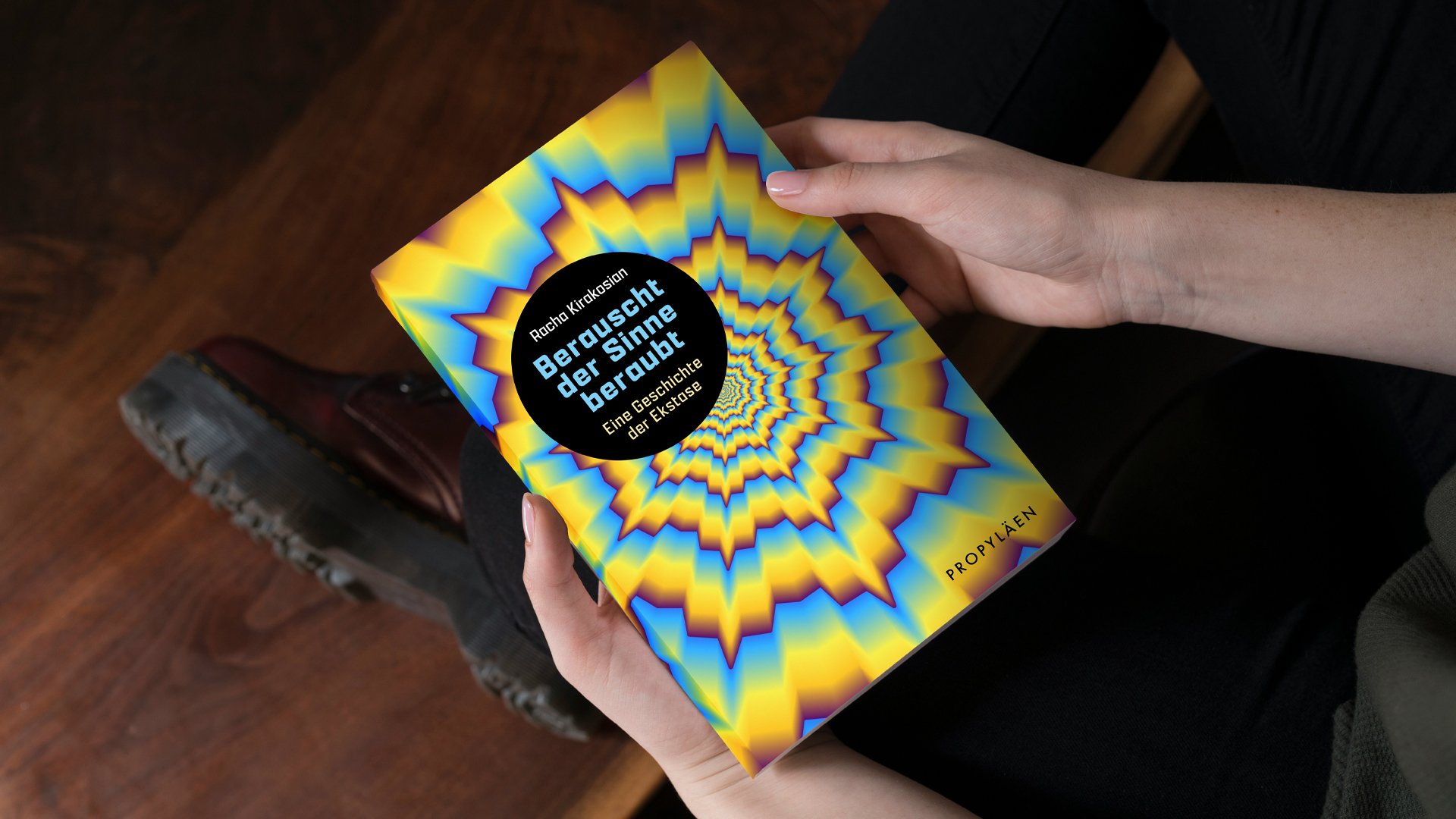
© Unsplash

© Unsplash
What happens when the world tilts—and we step outside ourselves, even if just for a moment? A glimpse into the elusive, the unpredictable, and the uncontrollable. An Essay by Racha Kirakosian.
‘Ecstasy’—this is a word we sometimes use casually to describe intense joy. But it reaches far beyond that. Ecstasy is a state of exception: a moment when boundaries dissolve—those of the body, of perception, of language. It comes about during music, dance, intoxication, rituals, pain, and collective experiences—it can even arise in the flow of work or in the presence of art. What unites these moments is a feeling of stepping outside the ordinary, a brief departure from the familiar order.
In Berauscht der Sinne beraubt (Intoxicated, Deprived of the Senses), ecstasy is not treated as a single, uniform concept but as a multifaceted phenomenon that shifts depending on the context. Sometimes loud, sometimes quiet. Sometimes life-giving, sometimes destructive. It can be seen as sacred or scandalous, a goal of spiritual practice or a loss of control—a moment of revelation or disruption.

This ambivalence isn’t incidental—it’s central. Ecstasy always moves between extremes: between boundlessness and discipline, between attraction and fear, and that’s where its power lies. It resists clear definition. In some contexts, it is celebrated, in others, feared or pathologized. The way it is judged often reveals more about the society in which it occurs than about the phenomenon itself.
The themes that emerge are rich and varied: ecstasy can provide insights—found in visions, dreams, or flow states. Ecstasy can be a liminal experience of pain—ranging from religious sacrifice to psychological overload. Ecstasy can be a projection—of femininity, hysteria, or spiritual enlightenment. And ecstasy can be collective—between shared euphoria and political manipulation.
Ecstasy is neither purely individual nor strictly culturally coded. It arises in a state of friction—between body and system, inner and outer, expression and expectation. And it is precisely where it cannot be clearly named that it unfurls its generative tension.
Ecstasy is not a state that you can pin down. But it leaves traces—in texts, in images, in bodies. These traces prove that it is not an exception, but something deeply woven into how we think, feel, and experience life. To explore ecstasy is not to escape reality but to look directly at its fault lines—and sometimes, at the potential hidden within them.
We can't wait to welcome Racha to our Festival! Don't miss her Live Reading on 15 June, 8 pm at Atelier Gardens!